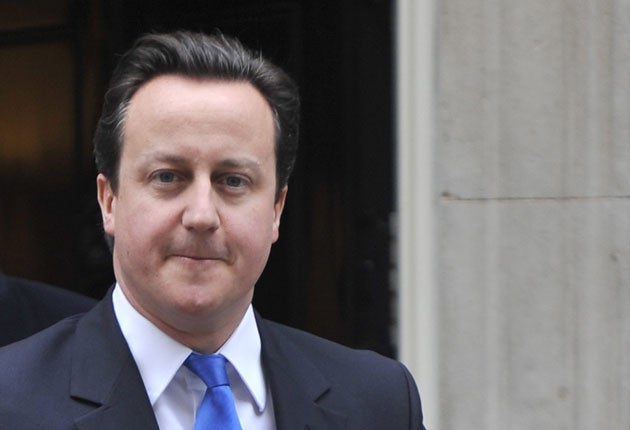European finance ministers are gathering for an emergency meeting on the Portuguese debt crisis, amid fears that British taxpayers may have to find more than £4 billion as part of a rescue package.
Lisbon is set to submit a formal request for a bail-out totalling an estimated 75 billion to 85 billion euros (£65 billion to £75 billion), after Prime Minister Jose Socrates' announcement he was following Greece and Ireland in seeking EU help to stabilise his economy.
The appeal for help came as the European Central Bank put up interest rates by a quarter of one per cent, putting further pressure on ailing economies within the eurozone.
Chancellor George Osborne - who will join fellow EU ministers at tomorrow's meeting in Budapest - said Lisbon's debt crisis showed why the Government had to take firm action to tackle the record deficit in Britain's public finances.
But Labour accused him of "desperate scaremongering", warning that the coalition Government's austerity programme had in fact put the UK into the group of "slow-growth" economies alongside Portugal.
And there was anger among Conservative MPs at the prospect of the UK being forced to help rescue another member of the eurozone, having already contributed emergency funding to Ireland.
Under the terms of a deal signed by Mr Osborne's predecessor Alistair Darling in the dying days of the Labour government, Britain is committed to contributing a share of any bail-out provided before 2013 under the European Financial Stability Mechanism (EFSM),
The Treasury said the UK was not planning to offer bilateral assistance to Portugal, in the way that it did to Ireland.
But it confirmed that Britain could be required to underwrite a loan of up to about £4.4 billion - 13.6% of the 37.5 billion euros remaining in the EFSM fund - as well as 4.5% of any IMF loan to Portugal.
Eurosceptics argued any Portuguese bail-out should be funded from the separate 440 billion-euro European Financial Stability Facility, which involves only eurozone countries and imposes no liability on the UK.
Business Secretary Vince Cable today refused to estimate how much Britain would be asked to find, telling the BBC: "We are members of the IMF and the EU and there are some implications from that but obviously we need to think through what the details are."
The "main lesson" from the Portuguese crisis was "do not go where these southern European countries have been in terms of public finance", he said.
Addressing the British Chambers of Commerce annual conference in London, Mr Osborne said the UK could now be in a similar plight to Portugal if the coalition Government had not pushed through its emergency cuts plan.
"Today of all days we can see the risks that would face Britain, if we were not dealing with our debts and paying off our national credit card. These risks are not imaginary - they are very, very real," he said.
"Those in our country who deny the urgent need to deal with our deficit are playing Russian roulette with Britain's national sovereignty. I will not do that."
But his Labour shadow Ed Balls said countries where deficit reduction was proceeding at a more leisurely pace, like the USA, France and Germany, were seeing improved GDP figures, while Britain had joined the likes of Portugal, Greece and Ireland in negative growth.
"The fact is last year the Portuguese raised VAT twice. They put in place big spending cuts. They have a market crisis because their economy is not growing... If you have not got growth, you can't get your deficit down," Mr Balls told Sky News.
"Austerity isn't working in those countries and increasingly austerity isn't working in Britain."
Accusing the Chancellor of being "out of his depth", he added: "If anybody is playing Russian roulette with the British economy it is George Osborne taking a huge gamble now without any idea how it's going to turn out."
Conservative MEPs urged Mr Osborne to block any use of the EFSM to shore up Portugal's stricken economy, arguing it was only intended to cover natural disasters.
"British voters will not accept that at home we are making tough but fair savings only to send money to countries that should never have been allowed to join the eurozone in the first place," said the leader of the Conservatives in Brussels, Martin Callanan.
He was backed by Bill Cash, the chairman of the Commons European Scrutiny Committee, which found in a recent report that the use of the mechanism for financial bailouts was "legally unsound".
"There is no legal basis on which the UK can contribute towards the Portuguese financial problem," said Mr Cash.
"In these times of austerity, the eurozone should look after itself without any British contribution whatsoever."
Meanwhile, Conservative backbencher Douglas Carswell challenged ministers' claims to have opposed Mr Darling's signing of the EFSM in the days between last year's inconclusive General Election and the formation of the coalition Government.
He pointed to a little-noticed memo to the European Scrutiny Committee from Treasury minister Justine Greening last July, in which she stated that the deal was backed by "cross-party consensus".
"George Osborne told the House of Commons in February that he had opposed the mechanism. It is urgent that we know who was right - they can't both be right," he said.
"It seems that nodding through the small print in those first few halcyon days in office has some pretty far-reaching and momentous consequences for us all."
Subscribe to Independent Premium to bookmark this article
Want to bookmark your favourite articles and stories to read or reference later? Start your Independent Premium subscription today.


Join our commenting forum
Join thought-provoking conversations, follow other Independent readers and see their replies